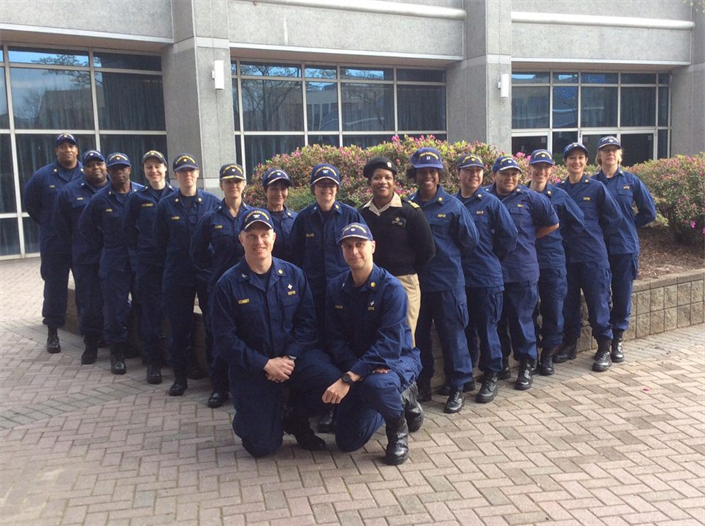Hurricane Irma Deployment, 2018
By LT Tanesha Tutt, DHEd, MS, CHES
Health Education Specialist
Division of Scientific Education and Professional Development
Centers for Disease Control and Prevention
What was the mission of this deployment?
From March 11 - March 18, 2018 I was deployed to Atlanta, GA to assist with case management services to displaced USVI residents in support of the Department of Health and Human Services' Hurricane Irma public health and medical response efforts.
What was your role during this deployment?
I served as a Case Manager, working along with social workers and psychologist to support medical evacuees and their families in obtaining medical services and preparing to move back to USVI. My caseload included eight patients residing in hotels, skilled nursing facilities, and hospitals around Atlanta. Patients ranged in age from 3 months to 82 years old. Medical conditions included stroke (to include paralysis), retinopathy of prematurity, and diabetes (to include amputees). I worked along with medical staff to obtain daily updates on patients' health conditions and medical needs in order to determine when the patients would be medically cleared to travel back to USVI. I worked with others on the deployment team to ensure the island had the necessary facilities to treat patients' healthcare needs as well as ensured patients had a safe place in which to return home. The role required me to use my interpersonal, communication, negotiation, and organizational skills to manage the caseload, as well as connect with patients and medical staff. Because of officer transitions, it was important for me to establish trust with patients in order to get the information I needed to provide them with the best care possible.
Was this your first deployment?
No.
What was the most important thing you learned during this deployment?
The most important thing I learned is that when having tough conversations with evacuees and their families, one must be empathetic, but also be ready to deal calmly with patients and families that may react negatively to the information you provide. It is also important to keep accurate records of patient information, knowing which patients are most critical versus those who are almost ready to transition out of care. It is important to understand that working with evacuees is tough, especially when their evacuation experience was traumatic. Often time evacuees and their families will resist going back home as here in the United States they often receive a better quality of care. However, ultimately my job was to ensure that we could transition these evacuees out of our care and return them to USVI. Thus, I had to be savvy in terms of how I navigated the resistance of patients and the goals of my deployment role.
What did you enjoy the most about this deployment?
I loved the deployment team. We all worked together and supported one another, especially when a team member had to deal with a patient's death. I also had some patients and families who were really nice.
What would you consider to be your major accomplishment stemming from this deployment?
I was able to ensure that 3 of my 8 patients were able to return to USVI.
What were some of the challenges that you experienced during this deployment?
Some of the challenges included working through patient and family resistance to return to USVI, work with facilities to ensure patients were receiving quality care, and trying to contact families in the United States to determine if they would be willing to care for their loved one once the person was released from care.
How did you prepare for the deployment – personally or work-wise?
For work, I prepared by making sure I left details about what I was working on. Because it was a local deployment, I did not have to really prepare my family. In addition, it was not my first deployment so my family knew what to expect.
Were there any classes, trainings that you had completed prior to your deployment that helped you in your current deployment?
No
How was your post deployment/reintegration experience? Was it smooth to transition back to your daily life as experienced prior to deployment?
It was a pretty smooth transition. The major hurdle was transitioning to the next officer and letting patients and families know who would be taking over for me.
Do you have any advice or “pearls of wisdom” for fellow officers who are being deployed/interested in deploying?
Everyone should deploy. The experience is invaluable. You will learn a lot, meet other officers, and gain new experience.

LT Tutt and team in Atlanta.
Next Deployment Narrative Back to Deployment Narrative homepage